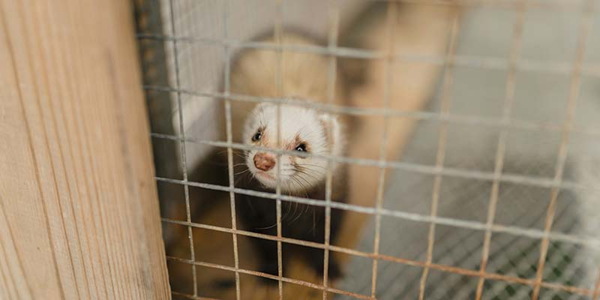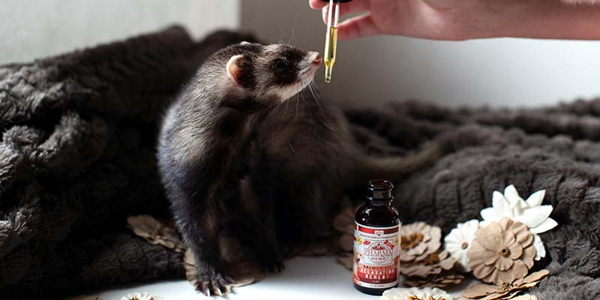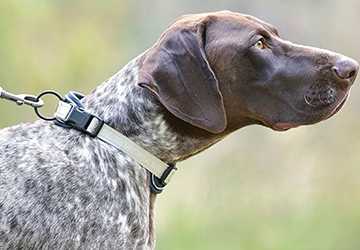Are Ferrets Good Pets? What You Should Know Before Getting One
Ferrets are playful, social, and full of energy, making them delightful companions for those who enjoy a lively and interactive pet. They have an inquisitive nature and love exploring, which can bring a lot of joy to a household. However, they also require time and attention. Before bringing one into your home, it’s important to understand its care needs.
Pros of Having a Ferret as a Pet
1. Playful and Curious Nature
Ferrets are known for their playful, inquisitive personalities. Their natural curiosity drives them to explore every corner of their environment, creating opportunities for fun games. Many owners set up obstacle courses or hide toys, turning their ferret’s explorations into engaging activities full of joy.
2. Energetic and Entertaining Behavior
The lively energy of ferrets brings endless entertainment. From impressive leaps to playful chase games, their antics are sure to amuse. Ferrets often perform clever tricks, like rolling or sneaking small objects away to stash them, offering both fun and moments of bonding between owners and pets.
3. Social and Bonding Potential
Ferrets are social animals that thrive on affection and interaction. They form strong bonds with their owners and enjoy following them around the house or curling up beside them for snuggles. Their loyalty and affectionate nature deepen the connection between ferret and owner.
4. Low Maintenance Comparatively
Ferrets generally require less maintenance than pets like dogs or cats. They are typically litter-trained, which reduces cleaning duties. While they need playtime and mental stimulation, their overall care routine is straightforward, making them an appealing choice for those looking for a pet with moderate upkeep.

Cons of Having a Ferret as a Pet
1. High Energy Requirements
As vivacious animals, ferrets thrive when engaging in play and need at least two hours of active playtime each day. This level of interaction is vital for their physical health and emotional stability. Without sufficient stimulation, ferrets may develop behavioral issues, including excessive biting or aggression. Consequently, prospective owners need to consider this essential element of ferret care seriously before deciding to adopt one.
2. Potential for Destructive Behavior
Given their naturally curious disposition, ferrets have a tendency to indulge in destructive behaviors, particularly when they experience boredom or lack of supervision. This may involve chewing on furniture, electrical cords, or other household items. To prevent unwanted destruction, it is crucial to ferret-proof living spaces by removing or securing items that pose risks. Engaging them with suitable toys and creating designated play areas can help to channel their energy positively and safely.
3. Health Concerns
Ferrets are unfortunately prone to several health issues, such as adrenal disease, insulinoma, and lymphoma, which can impact their quality of life. Regular veterinary check-ups are essential to detect potential issues early on and to provide necessary vaccinations and preventative care. Being informed about these health risks is crucial for managing the medical costs associated with ferret ownership.
4. Lifespan and Long-term Commitment
With an average lifespan ranging from 6 to 10 years, owning a ferret involves a long-term commitment. Potential owners must seriously consider the emotional responsibility of offering a nurturing environment, alongside the financial implications of food, healthcare, and other required supplies. Embracing such an investment entails assessing whether one can appropriately fulfill the diverse needs of their furry companion.
Tips for Caring a Ferret
Ensuring that your ferret enjoys a healthy and fulfilling life involves understanding their care requirements. Here are essential tips to consider:
Nutrition Needs
Ferrets require a high-protein, low-carbohydrate diet that closely resembles their natural carnivorous instincts. Opt for premium ferret food containing at least 30% protein and minimal grains. Fresh water should always be accessible, and you can supplement their diet with raw meats such as chicken or turkey, including occasional treats like eggs, to maintain their health and vitality.
Housing Requirements
Creating a proper habitat is essential for your ferret’s well-being. Aim for a spacious cage that stands at least 24 inches tall, complete with multiple exploration levels. Ferrets need space to move freely and engage in activities. Use soft bedding such as fleece or towels, steering clear of cedar or pine shavings, which can be harmful. Make sure that the cage features secure locks, preventing your inquisitive pet from escaping.
Exercise Routines
To remain happy and healthy, ferrets need considerable daily exercise. Ideally, they should enjoy at least 2-4 hours of supervised playtime outside of their cage each day. Encourage exploration with safe toys, tunnels, and engaging stimuli that allow them to channel their natural curiosity. Social interaction is equally vital, as it fosters emotional health and deepens bonds with their owners.
Grooming Practices
Regular grooming is essential for maintaining your ferret's health. In addition to brushing their fur to prevent matting and minimize shedding, you should only bathe ferrets as necessary, typically every few months, using a gentle pet shampoo. Maintaining their claws is also necessary; regular nail trimming every few weeks helps prevent injury and keeps their claws manageable.

Ferret Behavior and Training
Understanding ferret behavior is crucial for building a positive relationship with your pet.
Litter Training
Starting litter training as early as eight weeks of age can help your ferret learn proper bathroom habits. Place a litter box in their enclosure with litter made from recycled paper or similar materials. Encourage usage by placing them inside the box after meals. If accidents occur, redirect them calmly without punishment to foster a positive learning experience.
Play and Interaction
Engagement through play is critical for the mental well-being of ferrets. Activities like hide-and-seek, obstacle courses, or using various toys, such as balls or tunnels, mimic their innate desire to explore and can nurture a strong bond with their owner.
Socializing
Introducing your ferret to other pets and family members should be gradual and supervised to ensure a smooth interaction. Allow your ferret to sniff other pets while maintaining a safe distance, giving everyone time to adjust comfortably. Taking a patient approach helps your ferret become more secure and relaxed within their environment, minimizing unnecessary stress.
Is a Ferret the Right Pet for You?
When deciding if a ferret is the right pet for you, consider the following key factors:
Time and Energy Commitment
Ferrets are energetic and require daily interaction to stay happy and healthy. Assess whether you have the time to engage with your ferret regularly.
Living Space
Ferrets need space to explore. Ensure your living situation allows for a safe and stimulating environment where your ferret can roam freely.
Financial Preparedness
Ferret care involves more than just the initial setup costs. Ongoing expenses include food, healthcare, and enrichment activities, so evaluate whether you're financially ready for the commitment.
Aligning your lifestyle with a ferret’s needs will ensure a rewarding and harmonious experience as a pet owner.





